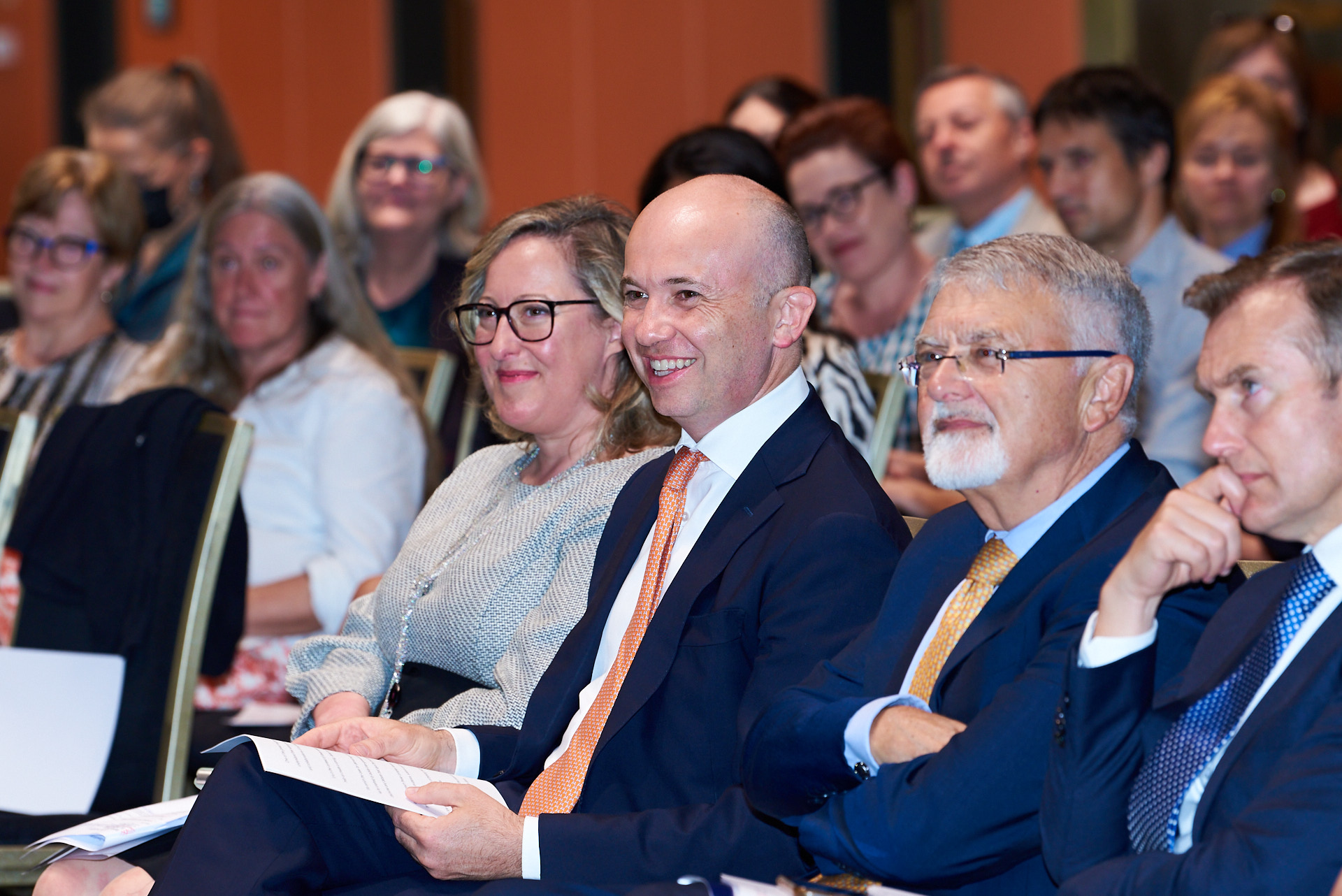2022 Policy Challenge Grant Winners
The JMI Policy Challenge Grant is an annual award program to support applied public policy research addressing some of New South Wales’s biggest policy challenges.
The James Martin Institute was delighted to award six grants to outstanding research teams from the University of Sydney, Western Sydney University, and the University of Technology Sydney at the NSW Parliament on 15 November 2022.
Photo Gallery
Click here to view more photos from the event.
Grant Winners
Grant Winner
Understanding youth who go missing or run away from out-of-home care
About the project
Young people who go missing or run away from their out-of-home care placements can become particularly vulnerable to exploitation and abuse. Focusing on NSW, this project will explore how these youth interact with services, including education, health, and housing. Providing a well-rounded perspective on the experience of children and young people who run away from care, the researchers will review existing literature and data sets, speak with stakeholders in the social services sector, and pursue the use of linked administrative data. The aim is to influence government strategies for these vulnerable young people and inform budget allocation for targeted prevention and early intervention..
The team
Grant Winner
Forging a gender equitable future of work in NSW
About the project
This project will translate an extensive body of established research into new, evidence-based principles to support the NSW Government in building a gender-equal future of work. It aims to provide evidence to integrate gender equality into recovery policies and long-term economic planning, and develop innovative gender-responsive policymaking that will boost productivity, economic growth, and the well-being of all people in NSW.
The team
Grant Winner
Building resilient communities
About the project
Communities across NSW have recently experienced major disasters, including fires, floods, lockdowns, and COVID-19. This project will focus on the role of government and non-governmental organisations in fostering community resilience by facilitating social connectedness for vulnerable families. It will engage key stakeholders and integrate lived experiences of those rarely consulted.
The team
Grant Winner
Providing domestic and family violence services in CALD and faith-based communities
About the project
It is well-known that domestic and family violence (DFV) has risen during the COVID-19 pandemic. Victims from culturally and linguistically diverse and faith-based communities have been particularly affected due to compounding barriers to accessing much-needed services. This project considers the challenges faced by both those experiencing family violence and service providers, particularly regarding funding needs. It examines whether investments have been sufficient and what more is needed to adequately respond to domestic and family violence in these communities while NSW recovers from the pandemic.
The team
Grant Winner
Harnessing community perspectives in disaster management
About the project
The recent Lismore floods provide a very powerful example of current community dissatisfaction with government policy in the area of disaster management. This project addresses the exclusion of community ‘voices’ at the policy and structural level by exploring new models of partnership that enact shared responsibility at the local level of disaster planning and preparation.
The team
Grant Winner
Governing facial recognition technology for digital identity
About the project
Governments are increasingly using facial recognition technology (FRT) for a range of purposes from service delivery to law enforcement. This raises some important legal, human rights and ethical issues, especially given FRT’s impact on the right to privacy. With strong legal guardrails, and clarity about the functions for which government should and should not use FRT, FRT can bring significant public benefit. However, the absence of effective protections puts individuals at severe risk of harm, and can threaten community trust in government. As Service NSW develops a digital identity verification system using FRT, there is a need to ensure that the law and broader governance system protect NSW citizens and build a firm foundation of trust. This project will address these challenges through the development of an effective governance and training framework that will help assist Service NSW to safeguard citizens and the broader community.




























